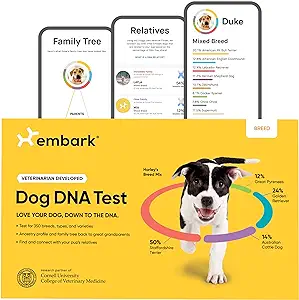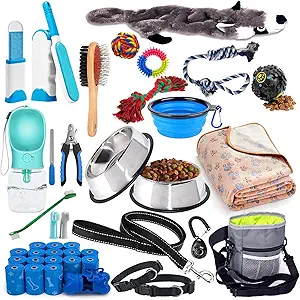Selecting the Best Pembroke Welsh Corgi for Your Family
This post may contain affiliate links, which means I’ll receive a commission if you purchase through my link, at NO EXTRA COST TO YOU
Choosing a Pembroke Welsh Corgi is an exciting journey filled with potential for joy, companionship, and unforgettable memories. As you embark on this adventure, it’s crucial to understand what makes the Corgi breed unique and how to select the perfect one for your family. This comprehensive guide will help you navigate the process, ensuring you make an informed decision that fits your lifestyle and home environment.

Understanding the Pembroke Welsh Corgi Breed
Before diving into the selection process, take some time to learn about the Pembroke Welsh Corgi breed. Corgis are known for their short legs, long bodies, and charming personalities. Originally bred as herding dogs in Wales, these dogs possess intelligence, agility, and a playful demeanor. Additionally, their affectionate nature makes them fantastic companions for families.
Key Traits of Pembroke Welsh Corgis
- Temperament: Corgis typically display a friendly, outgoing personality. They enjoy being part of family activities and thrive on social interaction. Moreover, this breed is known for its loyalty and protective instincts, making them excellent family pets.
- Energy Level: Corgis possess a high energy level, which means they require regular exercise to stay happy and healthy. Daily walks, playtime, and mental stimulation through training or puzzle toys keep them engaged.
- Intelligence: Corgis are highly intelligent, which makes training relatively straightforward. However, their cleverness can also lead to stubbornness. Therefore, consistent training and positive reinforcement work best with this breed.
Assessing Your Family’s Needs
Now that you understand the breed, it’s essential to evaluate your family’s specific needs. Consider the following factors:
1. Activity Level
First and foremost, think about your family’s activity level. Do you lead a busy lifestyle with outdoor adventures, or do you prefer a more relaxed environment? Pembroke Welsh Corgis thrive in active households, so they may not be the best fit for a family that prefers a sedentary lifestyle.
2. Space Requirements
Additionally, Corgis can adapt to various living situations, including apartments and homes with yards. However, ensure you have enough space for them to move around comfortably. If you live in a small space, commit to providing regular exercise and playtime outside.
3. Family Dynamics
Moreover, consider the ages of your family members. Corgis typically do well with children, as they enjoy playing and being part of the action. However, very young children may unintentionally provoke the dog, so supervision is essential. If you have other pets, think about how a Corgi will fit into the existing dynamics.
Researching Breeders and Adoption Options
Once you assess your family’s needs, it’s time to research your options. You can either adopt a Pembroke Welsh Corgi from a rescue organization or purchase one from a reputable breeder. Each option has its advantages, so consider what suits your situation best.
1. Finding a Reputable Breeder
If you choose to buy from a breeder, ensure they follow ethical breeding practices. Here are some tips for finding a reputable breeder:
- Ask for Recommendations: Seek recommendations from local breed clubs, veterinarians, or dog trainers. These individuals often have insights into responsible breeders in your area.
- Visit the Breeder’s Facility: A responsible breeder will welcome you to their facility. During your visit, observe the conditions in which the puppies are raised. Look for clean, safe environments where the puppies have ample space to play and socialize.
- Meet the Puppy’s Parents: Meeting the puppy’s parents allows you to assess their temperament and health. A well-socialized mother will likely produce well-adjusted puppies.
- Request Health Clearances: Reputable breeders provide health clearances for common genetic conditions. Therefore, ask for documentation related to hip dysplasia, eye conditions, and other hereditary issues.
2. Adopting from Rescue Organizations
If you prefer to adopt, consider local shelters or breed-specific rescue groups. Adopting a Corgi gives a dog a second chance at life while allowing you to find a loving companion. When adopting, consider these factors:
- Assessment of Temperament: Many rescue organizations conduct temperament tests to ensure compatibility between the dog and the family. Meet the dog in person and ask about its behavior with children and other pets.
- Fostering Before Adoption: Some organizations offer foster-to-adopt programs. This arrangement allows you to spend time with the dog before making a permanent commitment.
- Support After Adoption: Additionally, many rescue organizations provide ongoing support and resources after adoption. This support can be beneficial as you transition the dog into your home.
Meeting the Corgi’s Needs
Once you select your Pembroke Welsh Corgi, it’s essential to prepare to meet their needs. Providing a loving, supportive environment fosters a strong bond between you and your new furry friend.
1. Nutrition
Feeding your Corgi a balanced, nutritious diet is crucial for their overall health. Consult your veterinarian to determine the best diet based on your dog’s age, weight, and activity level. High-quality dog food provides essential nutrients and keeps your Corgi at a healthy weight.
2. Training
Start training your Corgi as soon as you bring them home. Begin with basic commands such as sit, stay, and come. Use positive reinforcement techniques, rewarding them with treats and praise. Consistency is key, so practice regularly and keep training sessions short and fun.
3. Socialization
Furthermore, expose your Corgi to various people, environments, and situations to promote healthy socialization. Early socialization helps prevent behavioral issues and ensures your Corgi grows into a well-adjusted adult.
4. Exercise and Play
Engage your Corgi in daily exercise to meet their energy needs. Take them for walks, play fetch, or involve them in agility activities. Moreover, mental stimulation through training games and puzzle toys enriches their lives.
Building a Lifelong Bond
Choosing the right Pembroke Welsh Corgi for your family is just the beginning. As you build a life together, focus on nurturing the bond you share. Provide love, attention, and care to ensure a happy and fulfilling relationship. With patience and commitment, your Corgi will become an integral part of your family, bringing joy and companionship for years to come.
Conclusion
In conclusion, selecting the best Pembroke Welsh Corgi for your family involves careful consideration of your lifestyle, needs, and preferences. Understanding the breed, assessing your family’s dynamics, and choosing a responsible source for your Corgi lays the foundation for a successful match. Once you bring your Corgi home, prioritize their care, training, and socialization to create a loving environment. By doing so, you ensure a lifelong, happy companionship with your Pembroke Welsh Corgi, enriching your lives together. Enjoy the journey of discovering the wonderful world of Corgis!





